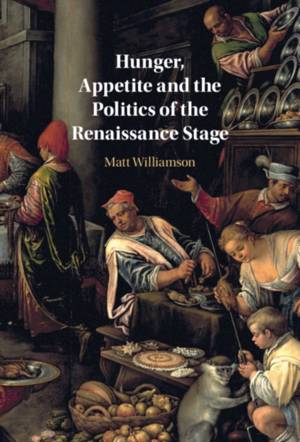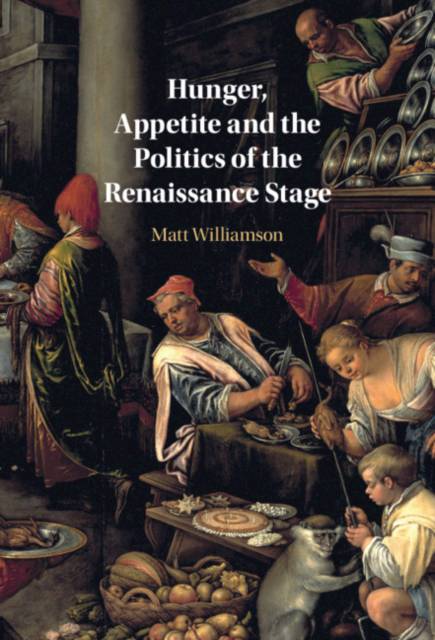
- Afhalen na 1 uur in een winkel met voorraad
- Gratis thuislevering in België vanaf € 30
- Ruim aanbod met 7 miljoen producten
- Afhalen na 1 uur in een winkel met voorraad
- Gratis thuislevering in België vanaf € 30
- Ruim aanbod met 7 miljoen producten
Zoeken
€ 144,45
+ 288 punten
Uitvoering
Omschrijving
Hunger and appetite permeate Renaissance theatre, with servants, soldiers, courtiers and misers all defined with striking regularity through their relation to food. Demonstrating the profound ongoing relevance of Marxist literary theory, Hunger, Appetite and the Politics of the Renaissance Stage highlights the decisive role of these drives in the complex politics of early modern drama. Plenty and excess were thematically inseparable from scarcity and want for contemporary audiences, such that hunger and appetite together acquired a unique significance as both subject and medium of political debate. Focusing critical attention on the relationship between cultural texts and the material base of society, Matthew Williamson reveals the close connections between how these drives were represented and the underlying socioeconomic changes of the period. At the same time, he shows how hunger and appetite provided the theatres with a means of conceptualising these changes and interrogating the forces that motivated them.
Specificaties
Betrokkenen
- Auteur(s):
- Uitgeverij:
Inhoud
- Aantal bladzijden:
- 280
- Taal:
- Engels
Eigenschappen
- Productcode (EAN):
- 9781108832069
- Verschijningsdatum:
- 10/06/2021
- Uitvoering:
- Hardcover
- Formaat:
- Genaaid
- Afmetingen:
- 152 mm x 229 mm
- Gewicht:
- 494 g

Alleen bij Standaard Boekhandel
+ 288 punten op je klantenkaart van Standaard Boekhandel
Beoordelingen
We publiceren alleen reviews die voldoen aan de voorwaarden voor reviews. Bekijk onze voorwaarden voor reviews.











